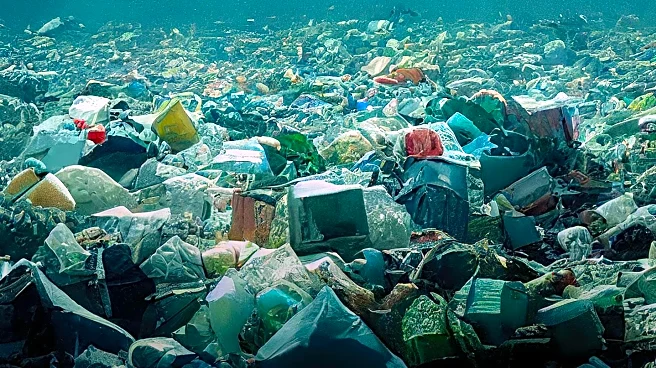What's Happening?
Negotiations for a UN Global Plastics Treaty aimed at ending plastic pollution by 2040 have stalled. Recent talks in Geneva failed to produce a binding agreement, with countries like Saudi Arabia, Russia, and Iran opposing ambitious measures. Despite the lack of progress, over 100 nations remain committed to pursuing a strong treaty. The failure of negotiations highlights the challenges in balancing environmental goals with economic interests, particularly for major plastic-producing nations. Businesses are urged to take independent action to reduce their plastic footprint, as waiting for international agreements may hinder competitiveness.
Why It's Important?
The stalled negotiations underscore the complexity of addressing global plastic pollution, a critical environmental issue. Without a binding treaty, efforts to reduce plastic waste and its environmental impact may be delayed. This situation presents challenges for businesses, especially those with international operations, as they navigate varying regulations and consumer expectations. The lack of progress also highlights the need for innovative solutions and corporate responsibility in tackling plastic pollution. Companies that proactively address their plastic use may gain a competitive advantage and align with growing consumer and investor demands for sustainability.
What's Next?
Countries and businesses may explore alternative approaches to address plastic pollution, such as forming coalitions or implementing national regulations. The ongoing push for a plastic-free world will likely continue, driven by consumer pressure and environmental advocacy. Companies are encouraged to adopt circular economy practices and invest in sustainable materials to reduce their environmental impact. The development of new technologies and business models may play a crucial role in achieving long-term sustainability goals.









